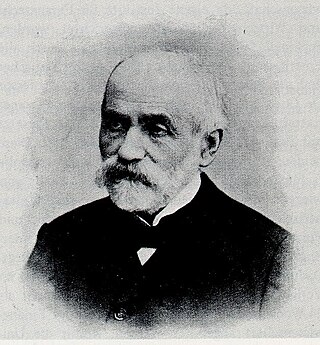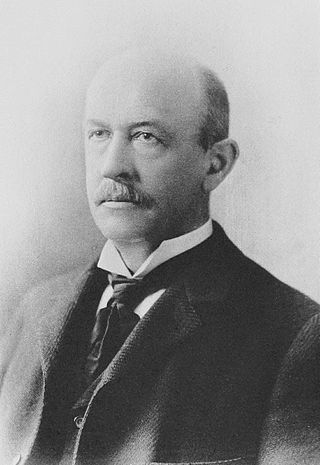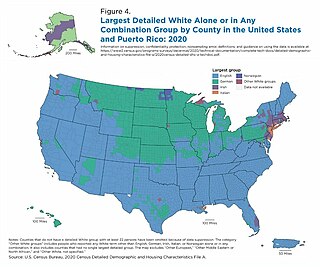
Ethnocentrism in social science and anthropology—as well as in colloquial English discourse—means to apply one's own culture or ethnicity as a frame of reference to judge other cultures, practices, behaviors, beliefs, and people, instead of using the standards of the particular culture involved. Since this judgment is often negative, some people also use the term to refer to the belief that one's culture is superior to, or more correct or normal than, all others—especially regarding the distinctions that define each ethnicity's cultural identity, such as language, behavior, customs, and religion. In common usage, it can also simply mean any culturally biased judgment. For example, ethnocentrism can be seen in the common portrayals of the Global South and the Global North.

Mores are social norms that are widely observed within a particular society or culture. Mores determine what is considered morally acceptable or unacceptable within any given culture. A folkway is what is created through interaction and that process is what organizes interactions through routine, repetition, habit and consistency.
Cultural relativism is the position that there is no universal standard to measure cultures by, and that all cultural values and beliefs must be understood relative to their cultural context, and not judged based on outside norms and values. Proponents of cultural relativism also tend to argue that the norms and values of one culture should not be evaluated using the norms and values of another.

The Lowlands is a cultural and historical region of Scotland.
The Ulster Scots, also called Ulster Scots people or, in North America, Scotch-Irish (Scotch-Airisch) or Scots-Irish, are an ethnic group in Ireland, who share a common history, culture and ancestry, some of whom speak an Ulster Scots dialect of the Scots language, a West Germanic language. As an ethnicity, they descend largely from Scottish and English settlers who moved to the north of Ireland, during the 17th century.

William Graham Sumner was an American clergyman, social scientist, and neoclassical liberal. He taught social sciences at Yale University, where he held the nation's first professorship in sociology and became one of the most influential teachers at any other major school.

European Americans are Americans of native European ancestry. This term includes people who are descended from the first European settlers in the United States as well as people who are descended from more recent European arrivals. European Americans have been the largest panethnic group in the United States since about the 17th century.

British Americans usually refers to Americans whose ancestral origin originates wholly or partly in the United Kingdom. It is primarily a demographic or historical research category for people who have at least partial descent from peoples of Great Britain and the modern United Kingdom, i.e. English Americans, Scottish Americans, Irish Americans, Welsh Americans, Scotch-Irish, Orcadian, Manx Americans, Cornish Americans, White Americans, and European Americans.
David Hackett Fischer is University Professor of History Emeritus at Brandeis University. Fischer's major works have covered topics ranging from large macroeconomic and cultural trends to narrative histories of significant events to explorations of historiography.

White Americans are Americans who identify as white people. This group constitutes the majority of the people in the United States. According to the 2020 census, 71%, or 235,411,507 people, were White alone or in combination, and 61.6%, or 204,277,273 people, were White alone. This represented a national white demographic decline from a 72.4% white alone share of the U.S. population in 2010.

The Puritan migration to New England was marked in its effects from 1620 to 1640, declining sharply afterwards. The term Great Migration can refer to the migration in the period of English Puritans to the New England Colonies, starting with Plymouth Colony and Massachusetts Bay Colony. They came in family groups rather than as isolated individuals and were mainly motivated by freedom to practice their beliefs.
In social science, foodways are the cultural, social, and economic practices relating to the production and consumption of food. Foodways often refers to the intersection of food in culture, traditions, and history.
The traditional culture of the Southern United States has been called a "culture of honor", that is, a culture where people avoid intentionally offending others, and maintain a reputation for not accepting improper conduct by others. A theory as to why the American South had or may have had this culture is an assumed regional belief in retribution to enforce one's rights and deter predation against one's family, home, and possessions.

Redneck is a derogatory term chiefly, but not exclusively, applied to white Americans perceived to be crass and unsophisticated, closely associated with rural whites of the Southern United States.

The society of the United States is based on Western culture, and has been developing since long before the United States became a country with its own unique social and cultural characteristics such as dialect, music, arts, social habits, cuisine, and folklore. Today, the United States of America is an ethnically and racially diverse country as a result of large-scale immigration from many different countries throughout its history.

The Northern Tier is the northernmost part of the contiguous United States, along the border with Canada. It can be defined as the states that border Canada, but historians include all of New England in the Northern Tier, as well as states of the Pacific Northwest, because of the common culture they shared for more than a century. Sometimes the area was called "Greater New England", because of the influence of its culture as migrants moved west across the continent. It had a consistent political culture until the 1960s. Moving east to west, such states include: Connecticut, Massachusetts, Rhode Island, New Hampshire, Maine, Vermont, New York, Michigan, Wisconsin, Iowa, Minnesota, South Dakota, North Dakota, Montana, Idaho, Oregon and Washington.
Thomas Hastings was a prominent English immigrant to New England, one of the approximately 20,000 immigrants who came as part of the Great Migration. A deacon of the church, among his many public offices he served on the Committee of Colony Assessments in 1640 and as Deputy for Watertown to the General Court of Massachusetts in 1673. He held property in nearby Dedham between 1636 and 1639, although there is no evidence that he ever lived there.

Mary "Polly" Norris Dickinson was an early American land and estate owner and manager. She is known for her ownership of one of the largest libraries in the American colonies, her participation in political thought of the time, and her presence in or near events of the Constitutional Convention, including her marriage to Framer John Dickinson, one of the early drafters of the Constitution and one of its signers on behalf of the colony of Delaware. They bequeathed much of their combined library to the first college founded in the new United States. The college was originally named "John and Mary's College", by Benjamin Rush, for Norris Dickinson and her husband and is now called Dickinson College.
William Symonds D.D. was an English clergyman, known as a promoter of the Colony of Virginia. The arguments of Symonds in favour of the colony in 1609, equating the British nation with the biblical Abraham, and stating that Native Americans lacked property rights, have been seen as presaging later developments in the colonisation of North America.

American Nations: A History of the Eleven Rival Regional Cultures of North America is an American non-fiction book written by Colin Woodard and published in 2011. Woodard proposes a framework for examining American history and current events based on a view of the country as a federation of eleven nations, each defined by a shared culture established by each nation's founding population.













